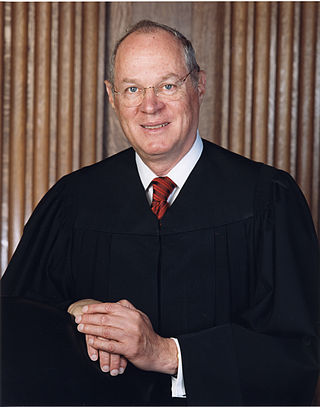| The 2008 term of the Supreme Court of the United States began October 6, 2008, and concluded October 4, 2009. This was the fourth term of Chief Justice John Roberts's tenure on the Court. |  | ||||||||||||||||||||||||||||||
| |||||||||||||||||||||||||||||||
| The 2008 term of the Supreme Court of the United States began October 6, 2008, and concluded October 4, 2009. This was the fourth term of Chief Justice John Roberts's tenure on the Court. |  | ||||||||||||||||||||||||||||||
| |||||||||||||||||||||||||||||||

The Supreme Court of the United States (SCOTUS) is the highest court in the federal judiciary of the United States. It has ultimate appellate jurisdiction over all U.S. federal court cases, and over state court cases that turn on questions of U.S. constitutional or federal law. It also has original jurisdiction over a narrow range of cases, specifically "all Cases affecting Ambassadors, other public Ministers and Consuls, and those in which a State shall be Party." The court holds the power of judicial review: the ability to invalidate a statute for violating a provision of the Constitution. It is also able to strike down presidential directives for violating either the Constitution or statutory law.
This page serves as an index of lists of United States Supreme Court cases. The United States Supreme Court is the highest federal court of the United States.

John Paul Stevens was an American lawyer and jurist who served as an associate justice of the Supreme Court of the United States from 1975 to 2010. At the time of his retirement, he was the second-oldest justice in the history of the U.S. Supreme Court and the third-longest-serving justice. At the time of his death in 2019 at age 99, he was the longest-lived Supreme Court justice ever. His long tenure saw him write for the Court on most issues of American law, including civil liberties, the death penalty, government action, and intellectual property. Despite being a registered Republican who throughout his life identified as a conservative, Stevens was considered to have been on the liberal side of the Court at the time of his retirement.

Samuel Anthony Alito Jr. is an American jurist who serves as an associate justice of the Supreme Court of the United States. He was nominated to the high court by President George W. Bush on October 31, 2005, and has served on it since January 31, 2006. After Antonin Scalia, Alito is the second Italian American justice to serve on the U.S. Supreme Court.

John Glover Roberts Jr. is an American jurist who has served as the 17th chief justice of the United States since 2005. He has been described as having a moderate conservative judicial philosophy, though he is primarily an institutionalist. For his willingness to work with the Supreme Court's liberal bloc, Roberts has been regarded as a swing vote on the U.S. Supreme Court.

Elena Kagan is an American lawyer who serves as an associate justice of the Supreme Court of the United States. She was appointed in 2010 by President Barack Obama and is the fourth woman to serve on the Court.

The Supreme Court of the United States is the highest court in the federal judiciary of the United States. The procedures of the Court are governed by the U.S. Constitution, various federal statutes, and its own internal rules. Since 1869, the Court has consisted of one chief justice and eight associate justices. Justices are nominated by the president, and with the advice and consent (confirmation) of the U.S. Senate, appointed to the Court by the president. Once appointed, justices have lifetime tenure unless they resign, retire, or are removed from office.

The 2007 term of the Supreme Court of the United States began October 1, 2007, and concluded September 30, 2008. The table illustrates which opinion was filed by each justice in each case and which justices joined each opinion.

The 2008 term of the Supreme Court of the United States began October 6, 2008, and concluded October 4, 2009. The table illustrates which opinion was filed by each justice in each case and which justices joined each opinion.

Anthony McLeod Kennedy is an American attorney and jurist who served as an associate justice of the Supreme Court of the United States from 1988 until his retirement in 2018. He was nominated to the court in 1987 by President Ronald Reagan, and sworn in on February 18, 1988. After the retirement of Sandra Day O'Connor in 2006, he was considered the swing vote on many of the Roberts Court's 5–4 decisions.
Snyder v. Phelps, 562 U.S. 443 (2011), is a landmark decision by the Supreme Court of the United States in which the Court held that speech made in a public place on a matter of public concern cannot be the basis of liability for a tort of emotional distress, even if the speech is viewed as offensive or outrageous.